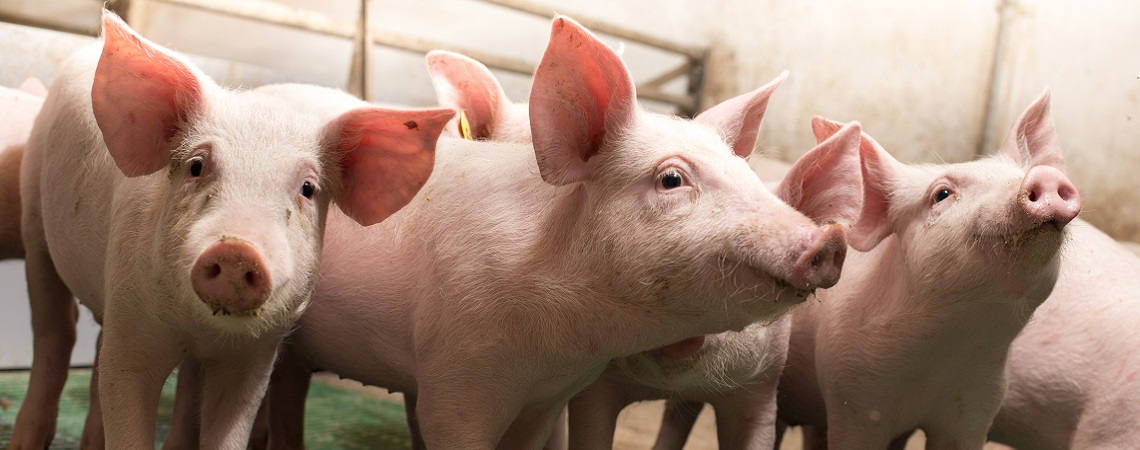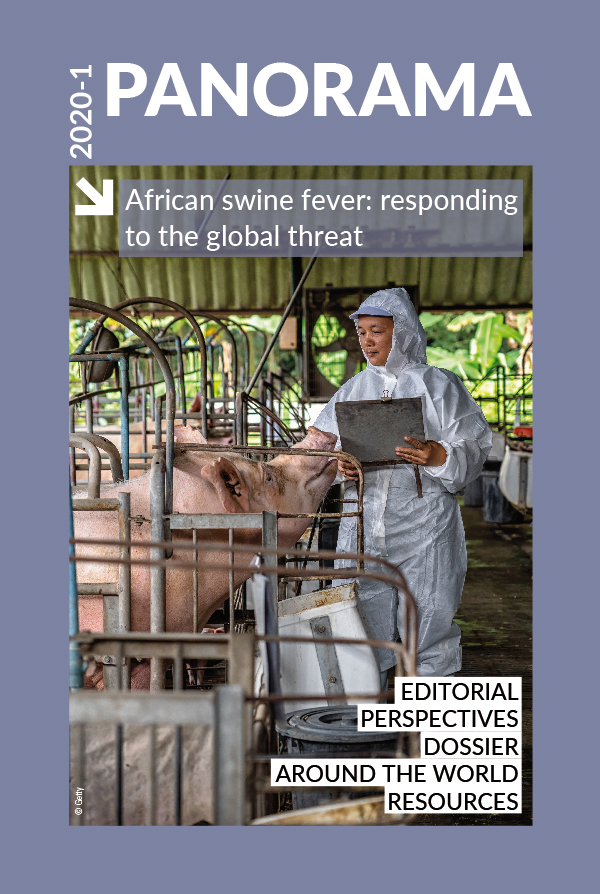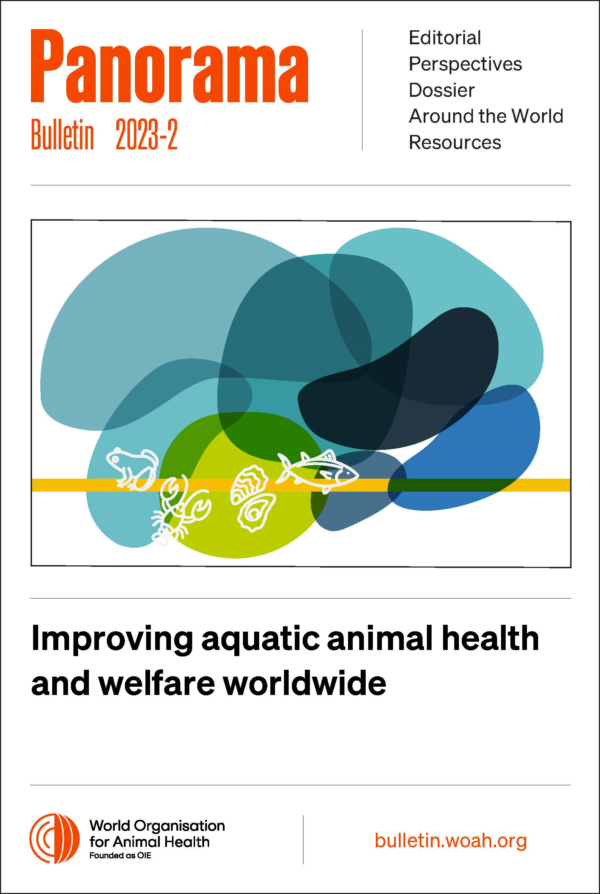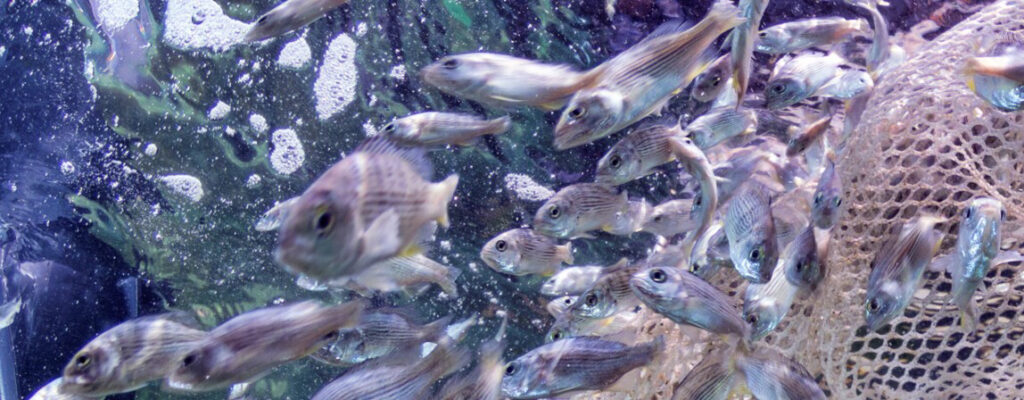Perspectives Posted on 2020-07-23 15:11:56
Joint actions
Standing Group of Experts on ASF for the Americas
Keywords
Authors
A. Ellis(1)*, J. Komal(2), L. Barcos(3) & C. Martinez Rivas(4)
(1) Senior Veterinary Advisor to the Chief Veterinary Officer, Canadian Food Inspection Agency, Ottawa, Canada.
(2) Chief Veterinary Officer/Delegate of Canada to the OIE, Vice President Science, Canadian Food Inspection Agency, Ottawa, Canada.
(3) OIE Regional Representative for the Americas.
(4) OIE Sub-Regional Representative for Central America.
* Corresponding author: andrea.ellis@canada.ca
The designations and denominations employed and the presentation of the material in this article do not imply the expression of any opinion whatsoever on the part of the OIE concerning the legal status of any country, territory, city or area or of its authorities, or concerning the delimitation of its frontiers and boundaries.
The views expressed in this article are solely the responsibility of the author(s). The mention of specific companies or products of manufacturers, whether or not these have been patented, does not imply that these have been endorsed or recommended by the OIE in preference to others of a similar nature that are not mentioned.
In September 2019, the Regional Steering Committee of GF‑TADs(1) for the Americas met in Panama and agreed to create a Standing Group of Experts (SGE) on ASF. Enhancing regional cooperation was a key recommendation of the ASF Forum (Ottawa, Canada, April 2019) [1] and the subject of Resolution No. 33, adopted at the 87th General Session of the World Assembly of Delegates of the OIE (May 2019) [2, 3].
The America’s SGE‑ASF is chaired by Canada and includes Regional Representatives of the World Organisation for Animal Health (OIE) and the Food and Agriculture Organization of the United Nations (FAO), Brazil, Chile, Colombia, Guatemala, Cuba, Jamaica, the United States of America, the Latin American Pig Producers’ Organisation (Organización Iberoamericana de Porcicultura – OIPORC), and relevant international partner organisations. External experts are invited to discuss priority topics [4].
To prepare for this meeting, the Executive Board of the OIE Regional Commission for the Americas decided to survey the region’s countries to assist in prioritising areas for strengthening preparedness for ASF, and opportunities for exchange. Two questionnaires were sent to all countries in the Americas – both OIE Members and non-OIE Members – to assess the risk of ASF entry and the region’s state of preparedness. The questionnaires were originally developed by FAO and had previously been successfully used in Asia and Africa. The survey was conducted by the OIE Regional Representation for the Americas and the analysis was performed by Canada. The results of the survey highlighted both the legal and illegal importation of pork products from infected countries as the major risk pathway for ASF. This drives home the point that border control is of primary importance. The main gaps in capacity relate to preparedness planning.
The first meeting of the Standing Group of Experts focused on border control
Given its importance, border control was the focus of the first meeting of the SGE‑ASF, held in Bogotá, Colombia, in December 2019. Representatives of the Veterinary and Border Control Services and other experts attended, emphasising the need for strong collaboration between these sectors. The meeting resulted in several recommendations to ensure strict border controls, which were disseminated to countries [5].
The second meeting of the Standing Group of Experts focused on risk factors
The 2nd meeting of the SGE-ASF for the Americas was held on 15 June 2020. The general objective of the meeting was to develop recommendations that would make it possible to evaluate the risk factors present in the Americas’ region for the introduction of the ASF virus [6].
Future topics include emergency preparedness, business continuity, and the role of wild and feral pigs.
________________________________________
(1) The Global Framework for the Progressive Control of Transboundary Animal Diseases (GF‑TADs) is a joint initiative of the OIE and FAO that endeavours to empower global and regional alliances in the fight against transboundary animal diseases (TADs), to provide for capacity building and to assist in establishing programmes for the specific control of certain TADs based on global and regional priorities.
| OIE portal on African swine fever |
References
- Government of Canada (2019). – Report. African Swine Fever Forum, Ottawa, Canada, 30 April – 1 May 2019.
- B. Plavšić, A. Rozstalnyy, J.Y. Park, V. Guberti, K. Depner & G. Torres (2019). – Strategic challenges to global control of African swine fever. Report on a Technical Item presented to the OIE World Assembly of Delegates during its 87th General Session (26–31 May 2019). https://doi.org/10.20506/TT.2985.
- World Organisation for Animal Health (OIE) (2019). – Resolution no. 33. Global Control of African Swine Fever.
- World Organisation for Animal Health (OIE) (2019). – 10th Meeting of the Regional Steering Committee of the GF-TADs for the Americas, Panama City, Panama, 17 September 2019.
- World Organisation for Animal Health (OIE) (2019). – First meeting of the Standing Group of Experts on ASF (SGE-ASF) in the Americas Region, Bogota, Colombia, 3–4 December 2019.
- World Organisation for Animal Health (OIE) (2020). – Second meeting of the Standing Group of Experts on ASF (SGE-ASF) in the Americas Region. Electronic meeting, 15 June 2020.












